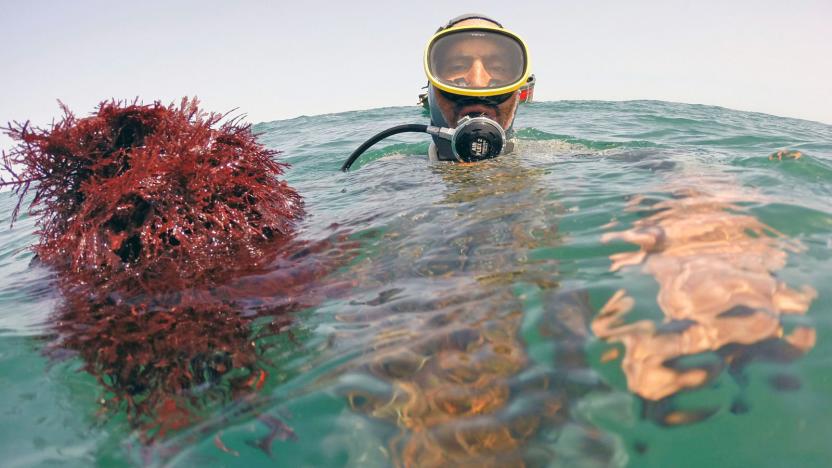lithiumsulfur
Latest

Seaweed could be the key to long-lasting electric car batteries
Lithium-sulfur batteries are theoretically ideal for powering gadgets. They have more than twice the energy density of lithium-ion packs, but at a much lower cost thanks to sulfur's dirt-cheap price. There's just one problem: sulfur dissolves, giving the battery a short lifespan. That's where Berkeley Lab might help. It recently discovered that a derivative of red seaweed, carrageenan, can stabilize a lithium-sulfur battery and make it practical for more devices. If you use the seaweed derivative as a binder (the "glue" that keeps a battery's active materials together), it reacts with the sulfur and prevents it from dissolving. The ultimate goal is to produce cells that last for "thousands" of charging cycles, or better than many batteries you see today.

Stanford develops safer lithium-sulfur batteries with four times the charge of lithium-ion cells
Longer battery life is high atop our list of gadget prayers, and the brainiacs at Stanford are one step closer to making our dreams come true with a new lithium-sulfur technology. Half of this trick lies in the silicon nanowire anode that the same team developed back in 2007, whereas the new cathode consists of a similarly commodious lithium sulfide nanostructure. Compared to present lithium-ion batteries, Stanford's design is "significantly safer" and currently achieves 80 percent more capacity, but it's nowhere near commercial launch with just 40 to 50 charge cycles (Li-ion does "300 to 500") due to the compound's rapid degradation. That said, we're promised a theoretical quadruple boost in capacity as the technology matures, so until then we'll keep that hamster running in our backpack.

